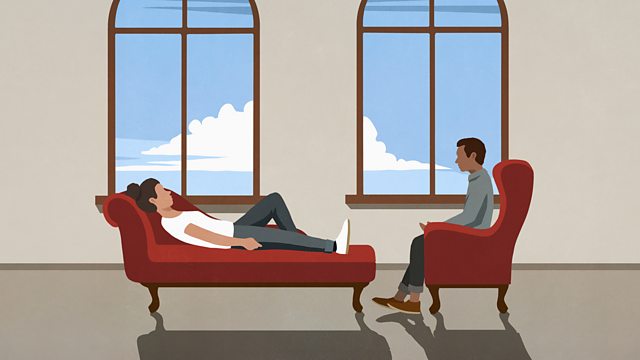Culture on the Couch
Journalist Ramaa Sharma explores how psychological talking therapies, which are based on the white, western model of universalism, often fail to help people from ethnic minorities.
Ramaa Sharma thought therapy could help with the onset of her depression and anxiety. Despite being a highly successful British South Asian journalist in a white-dominated profession, she felt isolated both at work and in her own family. Eventually she had cognitive behavioural therapy - a talking therapy which aims to manage issues by changing the mindset and attitude towards them.
Her white therapist at first supported her but when the therapist declared: "We're all the same," Ramaa questioned whether her therapist would ever truly understand her.
The idea of psychological universalism arose from a white, Western model of therapy which frustrated Ramaa because it didn't adequately embrace her distress over conflicts specific to her experience of being of Indian descent and raised in the UK.
In her search for answers Ramaa discovered a Canadian study which described the conflicts which can arise in the South Asian diaspora, and offered tools for therapists to support those struggling with competing individual and community values.
Studies show that people from black, Asian and other minority ethnic backgrounds drop out of talking therapies more quickly than white clients and for those who do persist, the outcomes are poorer. And it's not just a case of matching your therapist's skin tone to your own. Acknowledging the values and beliefs of "collectivist" cultures - those which sometimes require an individual to sacrifice their own wants in favour of wider family values or community cohesion - is central to culturally-appropriate mental health care.
We hear from therapists and psychologists about how mass movements like Black Lives Matter have accelerated the move away from universalism along with the growth of networks of black and Asian therapists and the NHS now promising to deliver more culturally appropriate mental health care.
Social media support groups like Brown Girls Rising on Facebook help to bring thousands of young women together from diaspora communities globally to support each other in the absence of adequate systemic support in the countries they live in.
Last on
Broadcasts
- Tue 29 Mar 2022 16:00Βι¶ΉΤΌΕΔ Radio 4
- Sat 16 Apr 2022 11:00Βι¶ΉΤΌΕΔ Radio 4

